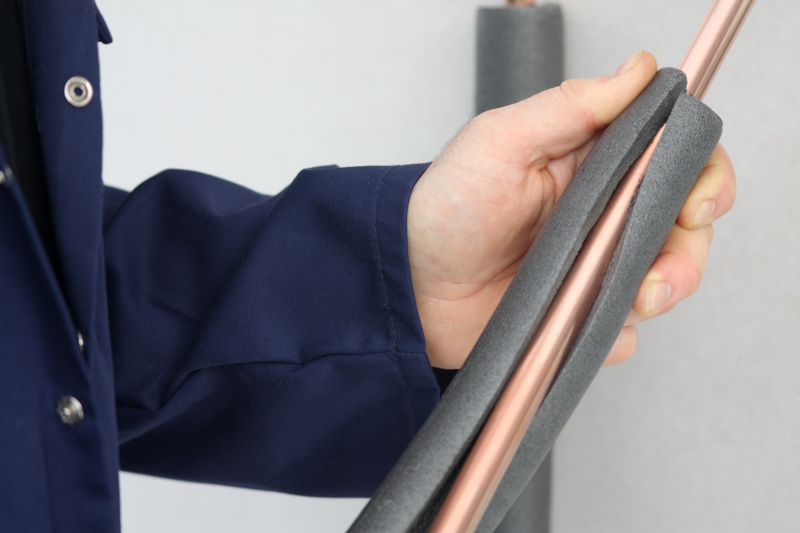
Insulating the pipes that carry water into your home could help you use less energy and prevent damage to your house. This simple home improvement is typically inexpensive, but it could result in significant savings, especially if: your pipes are exposed to cold temperatures; they have to carry water over long distances; your family uses a lot of water; you live in a humid area; or you use expensive heating fuel.
Prevent Heat Loss
Pipes typically carry water through unheated areas, such as between walls and in the basement and crawl space. As water travels through pipes from the water heater to a faucet, heat can be lost. Water that has been heated but is not needed right away can cool off if it sits in pipes.
Insulating the pipes in your home could prevent heat loss. If you installed insulation around your pipes, the water that reached faucets would be hotter than it was when the pipes were uninsulated. That would allow you to lower the temperature setting on the water heater, which could save you a substantial amount of money.
Keep Pipes From Bursting
If you live in a region where the temperature drops in the winter, insulating pipes could prevent them from freezing and bursting. That could help you avoid major damage to your home and expensive repair bills.
Prevent Damage From Condensation
When cold water enters a house in a humid area, condensation can cause several types of serious problems. Condensation on pipes can drip and damage other materials, such as wood or drywall. That can lead to mold and rot and may even attract termites. Water that condenses on cold water pipes can also attract other types of pests. Insulating the pipes in your house could reduce condensation.
Lower Home Cooling Bills
Pipes inside your house can lose heat to the environment. They can heat up indoor air, which can make the air conditioner have to work harder. Insulating pipes could help your AC work more efficiently.
How to Insulate Pipes
To get the best results, hot water pipes should be insulated along the entire distance from the water heater to the faucet. Cold water pipes only need to be insulated in the area close to the water heater tank.
If some of the water pipes in your home are exposed, if you are building a new house or if you are renovating your home, you may be able to install insulation yourself. If you need help insulating pipes, hire a local contractor.



